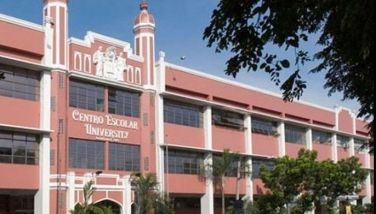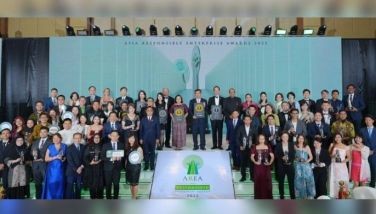“Ukay-ukay” imports: The pros and cons
About fifteen years ago (2010), there were some insinuations (should we say, proposal) to legalize the trade of “ukay-ukay” (second-hand garments and goods). It didn’t gain traction at all. Then, two (2) years ago (on February, 2023), Senator Raffy Tulfo “proposed to legalize and regulate its importation as it has already evolved as part of the Filipino Culture.” Thus, he filed Senate Bill (SB) No. 1778 repealing Republic Act (RA) No. 4653 which prohibits the commercial importation of used clothing and rags.
If this bill found merits and warranted the senators’ precious time for deliberation, we do not know. The fact remains that the senate is so preoccupied with, whether important or not, other matters. In the meantime, the import of used garments continued. In fact, just a week ago, the National Bureau of Investigation Region 7 confiscated 228 bales and is now trying “to identify the import channel and method used to illegally bring these in to Cebu City from South Korea.”
Indeed, the sale of “ukay-ukay”, which is done in broad daylight is seemingly enjoying a reasonable amount of legitimacy. In fact, local government units are issuing business permits to these stuffs’ traders. However, though it appeared legitimate, importation of used clothing is illegal by virtue of Republic Act No. 4653, “an act to safeguard the health of the people and maintain the dignity of the nation by declaring it a national policy to prohibit the commercial importation of textile articles commonly known as used clothing or rags.”
Surprisingly, despite its seeming abundance, we haven’t heard of anyone fined or, worst, imprisoned. By its sheer volume, it is unthinkable that these will go through the piercing eyes of the men and women of the Bureau of Customs unnoticed. Unless one shall opt to go blind, the much-ballyhooed state-of-the-art X-ray machines positioned at the international ports could have easily detected them too.
Unfortunately, however, Republic Act No. 1937 (in particular, Sec. 105 paragraph v.), allows importation of these stuffs for relief work or for non-for-profit relief organizations. Thus, through this small window of opportunity, some “ukay-ukay” importations have been made legal. Suspiciously, however, through devious means, it went to the mainstream. Thus, the used clothing business flourished.
Reportedly, these are items dropped off at charities in wealthy nations but are often sold to third world countries like the Philippines. Every year, over a US$1 billion worth are sent to these countries and are rummaged through by prudent shoppers in search of a bargain. Whether good or bad, this is one of the consequences of globalization.
No, this is not the kind of globalization that encourages trade among countries like the Philippines. Globalization is not necessary for a flimsy desire of becoming the world’s trash bin or receptacle of thrown-out apparels.
These tons of used clothing are here because our country has become a party of a circular trade, an unavoidable consequence of globalization. Taken advantage, some businessmen have turned wealthy nations’ garbage into gold, well, by selling them for a price of a dime.
However, before the euphoria each time we rake in heaps of ukay-ukay at dole-out prices subsides, let us revisit our garment and shoe manufacturers, especially the home-based ones. These home-based manufacturers are situated in the countryside. Some of them are based in Loon, Bohol (garments) and Carcar City (shoes). They do not just help propel economic activities in their localities, they also help decongest the metropolis by employing their immediate relatives and neighbors. Unregulated, this is the best recipe for the home-based garment and shoe manufacturers’ demise.
We truly understand that the government needs the much-needed revenue to fend-off our burgeoning deficit. Though, we wholeheartedly agree that such sneaky approach (legalization of importation of “ukay-ukay) shall definitely bring about revenue, conscientiously, a thorough evaluation of its impact on the economy, in general, and the directly affected industries, in particular, should be made.
Absolutely, this kind of bill or proposal emboldens importers (or smugglers) to bring in more. Thus, it is now imperative that our lawmakers must act decisively and appropriately before we see our small garment and shoe manufacturers throw their last worn apparel to “ukay-ukay” traders to survive.
- Latest

























